Information Box Group
Carijn Beumer
Faculty of Health, Medicine and Life Sciences, Maastricht
Assistant Professor, Department of Health, Ethics and Society
Bio
Carijn Beumer’s research interests include urban based biodiversity conservation; domestic gardening for sustainable cities; cultural perspectives on nature and conservation; global health and biodiversity in an urban context; globalization and global dynamics; complexity and systems thinking.
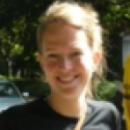
Carijn Beumer
Faculty of Health, Medicine and Life Sciences, Maastricht
Assistant Professor, Department of Health, Ethics and Society
Dr Ruben Drost
Assistant Professor Assistant Professor, Fac. Health, Medicine and Life Sciences, Health Services Research
Dr Ruben Drost
Assistant Professor Assistant Professor, Fac. Health, Medicine and Life Sciences, Health Services Research
Nora Engel
Faculty of Health, Medicine and Life Sciences, Maastricht
Assistant Professor, Department of Health, Ethics and Society
Bio
Nora Engel is an assistant professor, Global Health, with the department of Health, Ethics & Society at Maastricht University.
Her research interests lie at the intersection of science and technology, innovation, global health and development. She has performed extensive analysis of innovation dynamics around tuberculosis control in India. Next to academia she has had engagements in media, PR, culture and politics in various smaller agencies, the Council of Europe in Strasbourg and her own cultural project, The Club Exchange Programme.
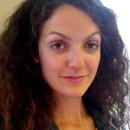
Nora Engel
Faculty of Health, Medicine and Life Sciences, Maastricht
Assistant Professor, Department of Health, Ethics and Society
Dr Mark Govers
Health Services Research, School for Public Health and Prim Care, Fac. Health, Medicine and Life Sciences
Associate Professor

Dr Mark Govers
Health Services Research, School for Public Health and Prim Care, Fac. Health, Medicine and Life Sciences
Associate Professor
Alana Helberg-Proctor
Faculty of Health, Medicine and Life Sciences, Maastricht
Assistant Professor
Bio
Dr. Alana Helberg-Proctor an Assistant Professor in the department of Health, Ethics, and Society at Maastricht University, and is a postdoctoral researcher and visiting lecturer at the University of Amsterdam. Alana obtained her PhD degree from the Department of Health, Ethics, and Society at Maastricht University’s Faculty of Health, Medicine, and Life Sciences in 2017. Her thesis is entitled (Un)Doing Ethnicity: Analyses of the socio-scientific production of ‘ethnicity’ in health research in the Netherlands.
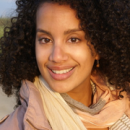
Alana Helberg-Proctor
Faculty of Health, Medicine and Life Sciences, Maastricht
Assistant Professor
Gonnie Klabbers
School for Public health and Primary Care; Faculty of Health, Medicine and Life Sciences, Maastricht
Teacher, PhD
Bio
Gonnie Klabbers is a lecturer in the Global Health program at Maastricht University. She is also the program’s thesis coordinator, responsible for helping students find a thesis research project based on their interests, prior education, and future career plans. Klabbers also tutors in several courses, and trains in research methodology, specifically in quantitative modelling techniques, and coordinates the course, New Biology/New Society.
With degrees in Physiotherapy, Work and Health, and a PhD focusing on psychosocial pathways underlying socioeconomic health inequalities, Klabbers has learned to view
health from different angles, acknowledging the complexity in maintaining good health or improving poor health. Klabbers’ main global health interest lies in the area of social health inequalities, which are increasing worldwide under the influence of the current political and economic climate.

Gonnie Klabbers
School for Public health and Primary Care; Faculty of Health, Medicine and Life Sciences, Maastricht
Teacher, PhD
Anja Krumeich
Department of Health, Ethics and Society, Maastricht
Director, MSc Global Health Program
Bio
Dr. Krumeich is director of the Global Health program at Maastricht University. She is Full Professor of Translational Ethnographies in Global Health and Education, a chair position embedded within the Department of Health, Ethics and Society. She is also Chair for the Platform Internationalization Education of the Faculty of Health, Medicine and Life Sciences. In addition, she is Adjunct Professor the Dept. for Public Health at Manipal University, and Adjunct Professor at Thailand’s Thammasat University. In 2016, she received Maastricht’s Wijnand Wijnen Prize for her work in global health education and contribution to building international partnerships.
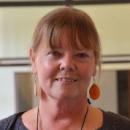
Anja Krumeich
Department of Health, Ethics and Society, Maastricht
Director, MSc Global Health Program
Agnes Meershoek
Faculty of Health, Medicine and Life Sciences, Maastricht
Associate Professor, Department of Health, Ethics & Society
Bio
Agnes Meershoek is an Associate Professor with the department of Health, Ethics & Society in the faculty of Health, Medicine and Life Sciences at Maastricht University. With over 20 years of teaching experience at the Bachelor and Master levels, her main area of interest is health and participation.
In her research, she uses constructive policy theory and science and technology studies approaches to study how health, health and social policies and health and welfare arrangements affect social inclusion of people with disabilities and/or health problems.
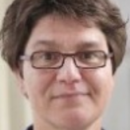
Agnes Meershoek
Faculty of Health, Medicine and Life Sciences, Maastricht
Associate Professor, Department of Health, Ethics & Society
Bernike Pasveer
Assistant Professor at the Department of Technology, Science & Society
Assistant Professor, Department of Health Services Research
Bio
Bernike Pasveer is Assistant Professor at the Department of Technology, Science & Society of FASoS/UM. She holds a PhD in the Sociology of Science & Technology from the University of Amsterdam (1992), and was a post-doctoral researcher at the Centre de Sociologie de l’Innovation in Paris (1993, 1994).
From 2006 to 2010 she was seconded in the field of Development Cooperation. In 2010 she returned to FASoS.
She is generally interested in the situatedness of and the technologies engaged in how so-called natural bodies perform. She has worked on (medical) imaging; reproductive health and freedom of choice; technologies of childbirth; the learning body in sports; the travel of medical guidelines and protocols to developing countries; death and dying. Currently she works on the intersections of home, care, and aging.
She teaches in the interfaculty minor Globalisation and Inequality, and in the Master Globalisation & Development Studies.

Bernike Pasveer
Assistant Professor at the Department of Technology, Science & Society
Assistant Professor, Department of Health Services Research
Bart Penders
Faculty of Health, Medicine and Life Sciences, Maastricht
Associate Professor
Bio
Bart has built expertise on issues of credibility, integrity and trust in and beyond science for nearly two decades.
He holds an MSc in biology (cum laude) from the Catholic University of Nijmegen (currently: Radboud Univerity of Nijmegen, the Netherlands) in which he specialized in evolutionary microbiology and extremophile microbiology, the former at Nijmegen and the latter at Regensburg University (Germany). Subsequently, he moved into Science and Technology Studies and based upon research conducted in this field, he received his PhD degree in 2008 from Maastricht University (the Netherlands). In his PhD research he dealt with the politics of large scale collaboration.
After two posdoc positions in Maastricht and Nijmegen and visiting scholarships in Bielefeld, Vienna and Christchurch, he now is a faculty member at Maastricht University, School for Public Health and Primary Care, Department of Health, Ethics & Society. He was awarded both the Kootstra and Caphri Talent Fellowships. His research deals with the normative effects of large-scale life sciences. He is mainly interested in how facts, knowledge and norms co-evolve and gain credibility, as well as in the political effects of this co-evolution. He studies these dynamics in the context of nutrition and life sciences. In 2013 and 2014 he was an Edmond J. Safra Network Fellow at Harvard University’s Edmond J. Safra Center for Ethics.
Bart has published five books and over two dozen peer-reviewed articles and chapters and numerous professional publications. His teaching centers on academic development in biomedicine, science and technology studies, global health and food innovation.
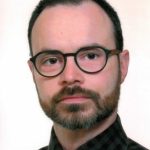
Bart Penders
Faculty of Health, Medicine and Life Sciences, Maastricht
Associate Professor
Dr David Townend
School for Public Health and Prim Care. Health, Medicine and Life Sciences
Full professor - Personal chair Metamedica, School for Public Health and Prim Care & Health, Medicine and Life Sciences
David Townend is Professor of Health and Life Sciences Jurispriudence. His theoretical work is focused on the relationship between individual and collective responsibility in relation to health and life science research; politeness and governance; and, on the concepts of privacy and property in research governance. His practical work focuses on data protection and privacy in medical and health research (especially Big Data and data sharing issues), and on the creation of effective research governance.

Dr David Townend
School for Public Health and Prim Care. Health, Medicine and Life Sciences
Full professor - Personal chair Metamedica, School for Public Health and Prim Care & Health, Medicine and Life Sciences
Harro Van Lente
professor of Science and Technology Studies and Head of Department at the Faculty of Arts and Social Science, Maastricht
Professor
Bio
Harro van Lente is full professor of Science and Technology Studies and Head of Department at the Faculty of Arts and Social Science, Maastricht University. He is one of the founding fathers of the Sociology of Expectations, which studies how representations of the future shape current socio-technical developments. He has published more than 100 journal articles, book chapters and edited volumes on technology dynamics, innovation policy and knowledge production. He is recipient of the 2018 EASST Freeman Award with the co-edited book (with Marianne Boenink and Ellen Moors) at Palgrave Macmillan, Emerging Technologies for Diagnosing Alzheimer’s Disease: Innovating with Care.
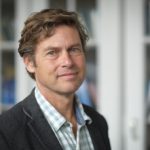
Harro Van Lente
professor of Science and Technology Studies and Head of Department at the Faculty of Arts and Social Science, Maastricht
Professor
Carijn Beumer
Faculty of Health, Medicine and Life Sciences, Maastricht
Assistant Professor, Department of Health, Ethics and Society
Bio
Carijn Beumer’s research interests include urban based biodiversity conservation; domestic gardening for sustainable cities; cultural perspectives on nature and conservation; global health and biodiversity in an urban context; globalization and global dynamics; complexity and systems thinking.
Carijn Beumer
Faculty of Health, Medicine and Life Sciences, Maastricht
Assistant Professor, Department of Health, Ethics and Society
Bio
Carijn Beumer’s research interests include urban based biodiversity conservation; domestic gardening for sustainable cities; cultural perspectives on nature and conservation; global health and biodiversity in an urban context; globalization and global dynamics; complexity and systems thinking.
Dr Ruben Drost
Assistant Professor Assistant Professor, Fac. Health, Medicine and Life Sciences, Health Services Research
Dr Ruben Drost
Assistant Professor Assistant Professor, Fac. Health, Medicine and Life Sciences, Health Services Research
Nora Engel
Faculty of Health, Medicine and Life Sciences, Maastricht
Assistant Professor, Department of Health, Ethics and Society
Bio
Nora Engel is an assistant professor, Global Health, with the department of Health, Ethics & Society at Maastricht University.
Her research interests lie at the intersection of science and technology, innovation, global health and development. She has performed extensive analysis of innovation dynamics around tuberculosis control in India. Next to academia she has had engagements in media, PR, culture and politics in various smaller agencies, the Council of Europe in Strasbourg and her own cultural project, The Club Exchange Programme.
Nora Engel
Faculty of Health, Medicine and Life Sciences, Maastricht
Assistant Professor, Department of Health, Ethics and Society
Bio
Nora Engel is an assistant professor, Global Health, with the department of Health, Ethics & Society at Maastricht University.
Her research interests lie at the intersection of science and technology, innovation, global health and development. She has performed extensive analysis of innovation dynamics around tuberculosis control in India. Next to academia she has had engagements in media, PR, culture and politics in various smaller agencies, the Council of Europe in Strasbourg and her own cultural project, The Club Exchange Programme.
Dr Mark Govers
Health Services Research, School for Public Health and Prim Care, Fac. Health, Medicine and Life Sciences
Associate Professor
Dr Mark Govers
Health Services Research, School for Public Health and Prim Care, Fac. Health, Medicine and Life Sciences
Associate Professor
Alana Helberg-Proctor
Faculty of Health, Medicine and Life Sciences, Maastricht
Assistant Professor
Bio
Dr. Alana Helberg-Proctor an Assistant Professor in the department of Health, Ethics, and Society at Maastricht University, and is a postdoctoral researcher and visiting lecturer at the University of Amsterdam. Alana obtained her PhD degree from the Department of Health, Ethics, and Society at Maastricht University’s Faculty of Health, Medicine, and Life Sciences in 2017. Her thesis is entitled (Un)Doing Ethnicity: Analyses of the socio-scientific production of ‘ethnicity’ in health research in the Netherlands.
Alana Helberg-Proctor
Faculty of Health, Medicine and Life Sciences, Maastricht
Assistant Professor
Bio
Dr. Alana Helberg-Proctor an Assistant Professor in the department of Health, Ethics, and Society at Maastricht University, and is a postdoctoral researcher and visiting lecturer at the University of Amsterdam. Alana obtained her PhD degree from the Department of Health, Ethics, and Society at Maastricht University’s Faculty of Health, Medicine, and Life Sciences in 2017. Her thesis is entitled (Un)Doing Ethnicity: Analyses of the socio-scientific production of ‘ethnicity’ in health research in the Netherlands.
Gonnie Klabbers
School for Public health and Primary Care; Faculty of Health, Medicine and Life Sciences, Maastricht
Teacher, PhD
Bio
Gonnie Klabbers is a lecturer in the Global Health program at Maastricht University. She is also the program’s thesis coordinator, responsible for helping students find a thesis research project based on their interests, prior education, and future career plans. Klabbers also tutors in several courses, and trains in research methodology, specifically in quantitative modelling techniques, and coordinates the course, New Biology/New Society.
With degrees in Physiotherapy, Work and Health, and a PhD focusing on psychosocial pathways underlying socioeconomic health inequalities, Klabbers has learned to view
health from different angles, acknowledging the complexity in maintaining good health or improving poor health. Klabbers’ main global health interest lies in the area of social health inequalities, which are increasing worldwide under the influence of the current political and economic climate.
Gonnie Klabbers
School for Public health and Primary Care; Faculty of Health, Medicine and Life Sciences, Maastricht
Teacher, PhD
Bio
Gonnie Klabbers is a lecturer in the Global Health program at Maastricht University. She is also the program’s thesis coordinator, responsible for helping students find a thesis research project based on their interests, prior education, and future career plans. Klabbers also tutors in several courses, and trains in research methodology, specifically in quantitative modelling techniques, and coordinates the course, New Biology/New Society.
With degrees in Physiotherapy, Work and Health, and a PhD focusing on psychosocial pathways underlying socioeconomic health inequalities, Klabbers has learned to view
health from different angles, acknowledging the complexity in maintaining good health or improving poor health. Klabbers’ main global health interest lies in the area of social health inequalities, which are increasing worldwide under the influence of the current political and economic climate.
Anja Krumeich
Department of Health, Ethics and Society, Maastricht
Director, MSc Global Health Program
Bio
Dr. Krumeich is director of the Global Health program at Maastricht University. She is Full Professor of Translational Ethnographies in Global Health and Education, a chair position embedded within the Department of Health, Ethics and Society. She is also Chair for the Platform Internationalization Education of the Faculty of Health, Medicine and Life Sciences. In addition, she is Adjunct Professor the Dept. for Public Health at Manipal University, and Adjunct Professor at Thailand’s Thammasat University. In 2016, she received Maastricht’s Wijnand Wijnen Prize for her work in global health education and contribution to building international partnerships.
Anja Krumeich
Department of Health, Ethics and Society, Maastricht
Director, MSc Global Health Program
Bio
Dr. Krumeich is director of the Global Health program at Maastricht University. She is Full Professor of Translational Ethnographies in Global Health and Education, a chair position embedded within the Department of Health, Ethics and Society. She is also Chair for the Platform Internationalization Education of the Faculty of Health, Medicine and Life Sciences. In addition, she is Adjunct Professor the Dept. for Public Health at Manipal University, and Adjunct Professor at Thailand’s Thammasat University. In 2016, she received Maastricht’s Wijnand Wijnen Prize for her work in global health education and contribution to building international partnerships.
Agnes Meershoek
Faculty of Health, Medicine and Life Sciences, Maastricht
Associate Professor, Department of Health, Ethics & Society
Bio
Agnes Meershoek is an Associate Professor with the department of Health, Ethics & Society in the faculty of Health, Medicine and Life Sciences at Maastricht University. With over 20 years of teaching experience at the Bachelor and Master levels, her main area of interest is health and participation.
In her research, she uses constructive policy theory and science and technology studies approaches to study how health, health and social policies and health and welfare arrangements affect social inclusion of people with disabilities and/or health problems.
Agnes Meershoek
Faculty of Health, Medicine and Life Sciences, Maastricht
Associate Professor, Department of Health, Ethics & Society
Bio
Agnes Meershoek is an Associate Professor with the department of Health, Ethics & Society in the faculty of Health, Medicine and Life Sciences at Maastricht University. With over 20 years of teaching experience at the Bachelor and Master levels, her main area of interest is health and participation.
In her research, she uses constructive policy theory and science and technology studies approaches to study how health, health and social policies and health and welfare arrangements affect social inclusion of people with disabilities and/or health problems.
Bernike Pasveer
Assistant Professor at the Department of Technology, Science & Society
Assistant Professor, Department of Health Services Research
Bio
Bernike Pasveer is Assistant Professor at the Department of Technology, Science & Society of FASoS/UM. She holds a PhD in the Sociology of Science & Technology from the University of Amsterdam (1992), and was a post-doctoral researcher at the Centre de Sociologie de l’Innovation in Paris (1993, 1994).
From 2006 to 2010 she was seconded in the field of Development Cooperation. In 2010 she returned to FASoS.
She is generally interested in the situatedness of and the technologies engaged in how so-called natural bodies perform. She has worked on (medical) imaging; reproductive health and freedom of choice; technologies of childbirth; the learning body in sports; the travel of medical guidelines and protocols to developing countries; death and dying. Currently she works on the intersections of home, care, and aging.
She teaches in the interfaculty minor Globalisation and Inequality, and in the Master Globalisation & Development Studies.
Bernike Pasveer
Assistant Professor at the Department of Technology, Science & Society
Assistant Professor, Department of Health Services Research
Bio
Bernike Pasveer is Assistant Professor at the Department of Technology, Science & Society of FASoS/UM. She holds a PhD in the Sociology of Science & Technology from the University of Amsterdam (1992), and was a post-doctoral researcher at the Centre de Sociologie de l’Innovation in Paris (1993, 1994).
From 2006 to 2010 she was seconded in the field of Development Cooperation. In 2010 she returned to FASoS.
She is generally interested in the situatedness of and the technologies engaged in how so-called natural bodies perform. She has worked on (medical) imaging; reproductive health and freedom of choice; technologies of childbirth; the learning body in sports; the travel of medical guidelines and protocols to developing countries; death and dying. Currently she works on the intersections of home, care, and aging.
She teaches in the interfaculty minor Globalisation and Inequality, and in the Master Globalisation & Development Studies.
Bart Penders
Faculty of Health, Medicine and Life Sciences, Maastricht
Associate Professor
Bio
Bart has built expertise on issues of credibility, integrity and trust in and beyond science for nearly two decades.
He holds an MSc in biology (cum laude) from the Catholic University of Nijmegen (currently: Radboud Univerity of Nijmegen, the Netherlands) in which he specialized in evolutionary microbiology and extremophile microbiology, the former at Nijmegen and the latter at Regensburg University (Germany). Subsequently, he moved into Science and Technology Studies and based upon research conducted in this field, he received his PhD degree in 2008 from Maastricht University (the Netherlands). In his PhD research he dealt with the politics of large scale collaboration.
After two posdoc positions in Maastricht and Nijmegen and visiting scholarships in Bielefeld, Vienna and Christchurch, he now is a faculty member at Maastricht University, School for Public Health and Primary Care, Department of Health, Ethics & Society. He was awarded both the Kootstra and Caphri Talent Fellowships. His research deals with the normative effects of large-scale life sciences. He is mainly interested in how facts, knowledge and norms co-evolve and gain credibility, as well as in the political effects of this co-evolution. He studies these dynamics in the context of nutrition and life sciences. In 2013 and 2014 he was an Edmond J. Safra Network Fellow at Harvard University’s Edmond J. Safra Center for Ethics.
Bart has published five books and over two dozen peer-reviewed articles and chapters and numerous professional publications. His teaching centers on academic development in biomedicine, science and technology studies, global health and food innovation.
Bart Penders
Faculty of Health, Medicine and Life Sciences, Maastricht
Associate Professor
Bio
Bart has built expertise on issues of credibility, integrity and trust in and beyond science for nearly two decades.
He holds an MSc in biology (cum laude) from the Catholic University of Nijmegen (currently: Radboud Univerity of Nijmegen, the Netherlands) in which he specialized in evolutionary microbiology and extremophile microbiology, the former at Nijmegen and the latter at Regensburg University (Germany). Subsequently, he moved into Science and Technology Studies and based upon research conducted in this field, he received his PhD degree in 2008 from Maastricht University (the Netherlands). In his PhD research he dealt with the politics of large scale collaboration.
After two posdoc positions in Maastricht and Nijmegen and visiting scholarships in Bielefeld, Vienna and Christchurch, he now is a faculty member at Maastricht University, School for Public Health and Primary Care, Department of Health, Ethics & Society. He was awarded both the Kootstra and Caphri Talent Fellowships. His research deals with the normative effects of large-scale life sciences. He is mainly interested in how facts, knowledge and norms co-evolve and gain credibility, as well as in the political effects of this co-evolution. He studies these dynamics in the context of nutrition and life sciences. In 2013 and 2014 he was an Edmond J. Safra Network Fellow at Harvard University’s Edmond J. Safra Center for Ethics.
Bart has published five books and over two dozen peer-reviewed articles and chapters and numerous professional publications. His teaching centers on academic development in biomedicine, science and technology studies, global health and food innovation.
Dr David Townend
School for Public Health and Prim Care. Health, Medicine and Life Sciences
Full professor - Personal chair Metamedica, School for Public Health and Prim Care & Health, Medicine and Life Sciences
David Townend is Professor of Health and Life Sciences Jurispriudence. His theoretical work is focused on the relationship between individual and collective responsibility in relation to health and life science research; politeness and governance; and, on the concepts of privacy and property in research governance. His practical work focuses on data protection and privacy in medical and health research (especially Big Data and data sharing issues), and on the creation of effective research governance.
Dr David Townend
School for Public Health and Prim Care. Health, Medicine and Life Sciences
Full professor - Personal chair Metamedica, School for Public Health and Prim Care & Health, Medicine and Life Sciences
David Townend is Professor of Health and Life Sciences Jurispriudence. His theoretical work is focused on the relationship between individual and collective responsibility in relation to health and life science research; politeness and governance; and, on the concepts of privacy and property in research governance. His practical work focuses on data protection and privacy in medical and health research (especially Big Data and data sharing issues), and on the creation of effective research governance.
Harro Van Lente
professor of Science and Technology Studies and Head of Department at the Faculty of Arts and Social Science, Maastricht
Professor
Bio
Harro van Lente is full professor of Science and Technology Studies and Head of Department at the Faculty of Arts and Social Science, Maastricht University. He is one of the founding fathers of the Sociology of Expectations, which studies how representations of the future shape current socio-technical developments. He has published more than 100 journal articles, book chapters and edited volumes on technology dynamics, innovation policy and knowledge production. He is recipient of the 2018 EASST Freeman Award with the co-edited book (with Marianne Boenink and Ellen Moors) at Palgrave Macmillan, Emerging Technologies for Diagnosing Alzheimer’s Disease: Innovating with Care.
Harro Van Lente
professor of Science and Technology Studies and Head of Department at the Faculty of Arts and Social Science, Maastricht
Professor
Bio
Harro van Lente is full professor of Science and Technology Studies and Head of Department at the Faculty of Arts and Social Science, Maastricht University. He is one of the founding fathers of the Sociology of Expectations, which studies how representations of the future shape current socio-technical developments. He has published more than 100 journal articles, book chapters and edited volumes on technology dynamics, innovation policy and knowledge production. He is recipient of the 2018 EASST Freeman Award with the co-edited book (with Marianne Boenink and Ellen Moors) at Palgrave Macmillan, Emerging Technologies for Diagnosing Alzheimer’s Disease: Innovating with Care.
